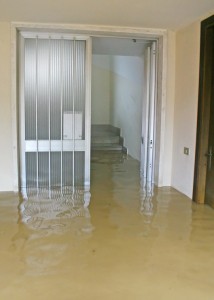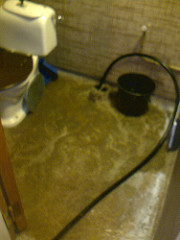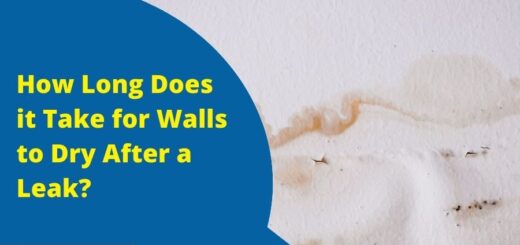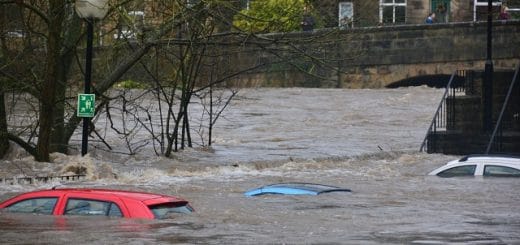The Various Types of Water Damage and their Health Risks
Almost every homeowner has dealt with water damage in their home and while many understand the affect it can have on their property, few realize that water damage can also increase certain health risks. Water damage can result from so many different factors and there are different types of water damage including clean water damage, dirty water damage, and black water damage that vary depending the level of contaminants it may contain. But what each of these different types of water damage have in common is that they can leadLead is a heavy metal that can be toxic to humans, especiall... More to certain health effects such as allergies and respiratory issues by contributing to poor indoor air qualityIndoor air quality (IAQ) refers to the condition of the air ... More, causing moldMold is a type of fungus that grows in damp or humid conditi... More growth, and aerosolizing foul scent molecules. It is important to be able to recognize the different types of water damage as well as the potential health risks of each type.
Clean Water Damage

Dirty water or black water that contains dangerous contaminants can be hazardous to your health.
Clean water damage is water damage in which the excess water itself is free of microorganisms that can cause allergies or infectionInfection is the invasion and multiplication of harmful micr... More in people. This type of water damage includes leaks from certain plumbing fixtures like faucets and sinks as well as leaking dishwashers, refrigerators, washing machines and other appliances. While the initial water damage from these sources is not hazardous to your health, ignoring it can eventually cause moldMold is a type of fungus that grows in damp or humid conditi... More or mildewMildew is a type of fungus that grows on damp surfaces, typi... More growth in the affected areas which is harmful to your health. Clean water damage must be cleaned up before it has a chance to harbor moldMold is a type of fungus that grows in damp or humid conditi... More or mildewMildew is a type of fungus that grows on damp surfaces, typi... More growth. If the water damage is widespread or may have been absorbed into the surrounding building materials, it is best to call a water damage restoration professional to make sure that it is removed completely.
Dirty Water Damage
Dirty water damage involves water that contains some hazardous contaminants including certain microorganisms that can leadLead is a heavy metal that can be toxic to humans, especiall... More to negative health effects through direct contact or by becoming aerosolized. The most common sources of dirty water damage are the sump pumpA sump pump is a pump installed in a basement or crawlspace ... More and toilet and if you experience dirty water damage in your home, you must protect yourself with boots, gloves, and goggles or a facemask when removing the excess water. Simply removing the water from dirty water damage is not enough, the affected area must also be cleaned and disinfected to prevent health risks. A water damage restoration professional can safely remove dirty water damage and ensure that the area is thoroughly disinfected.
Black Water Damage

Toilet overflows are common sources of dirty water damage.
Black water damage is the most hazardous type of water damage and involves water that contains many harmful contaminants including microorganisms, sewageSewage is wastewater containing biological and chemical cont... More, and human or chemical waste. Flood damage and sewageSewage is wastewater containing biological and chemical cont... More backups are the most common sources of black water damage and because of the risk to your health, it is highly recommended that you hire a professional to clean up flood damage and any other black water damage because they have the right cleaning products to disinfect the affected surfaces and purify the air to eliminate moldMold is a type of fungus that grows in damp or humid conditi... More sporesSpores are microscopic reproductive units of fungi or mold t... More and other airborne contaminants. MoldMold is a type of fungus that grows in damp or humid conditi... More, microorganisms, and toxins from waste materials can result in a range of allergic reactions and extended exposure can even leadLead is a heavy metal that can be toxic to humans, especiall... More to more serious respiratory problems including infections and difficulty breathing. If you come into contact with black water, make sure you use warm water and soap to wash yourself vigorously.
Regardless of the source, water damage can have negative effects on your health and it is categorized into the different types depending on the level of contaminants it contains. However, every type of water damage including clean water damage can create conditions that are hazardous to your health if ignored, making it very important to react quickly to all water damage. If the excess water in your home or building is extensive or you believe that you may be dealing with dirty water or black water, contact a water damage restoration professional near you. These professionals can effectively clean up all types of water damage and disinfect the area to eliminate any health threats.












